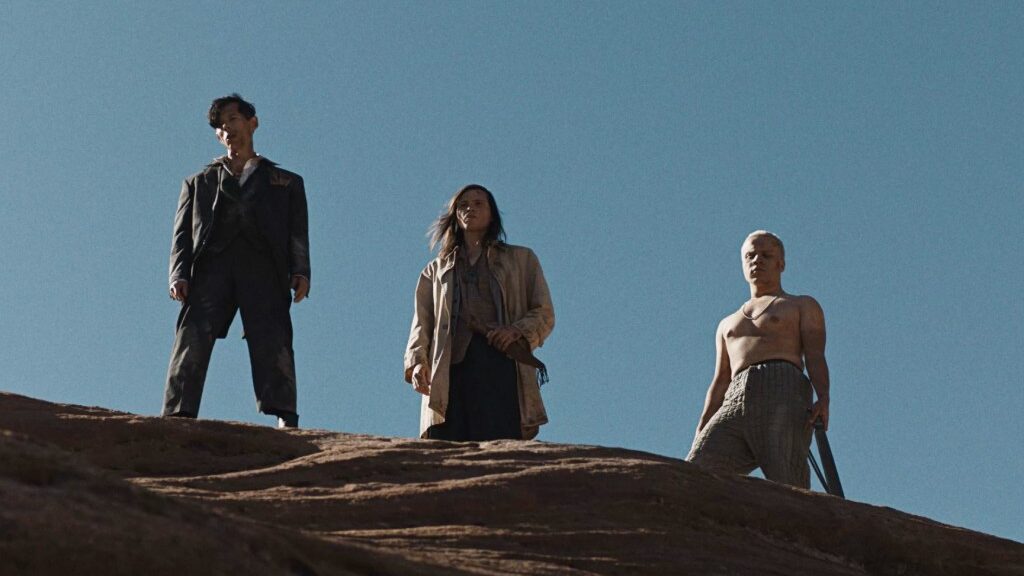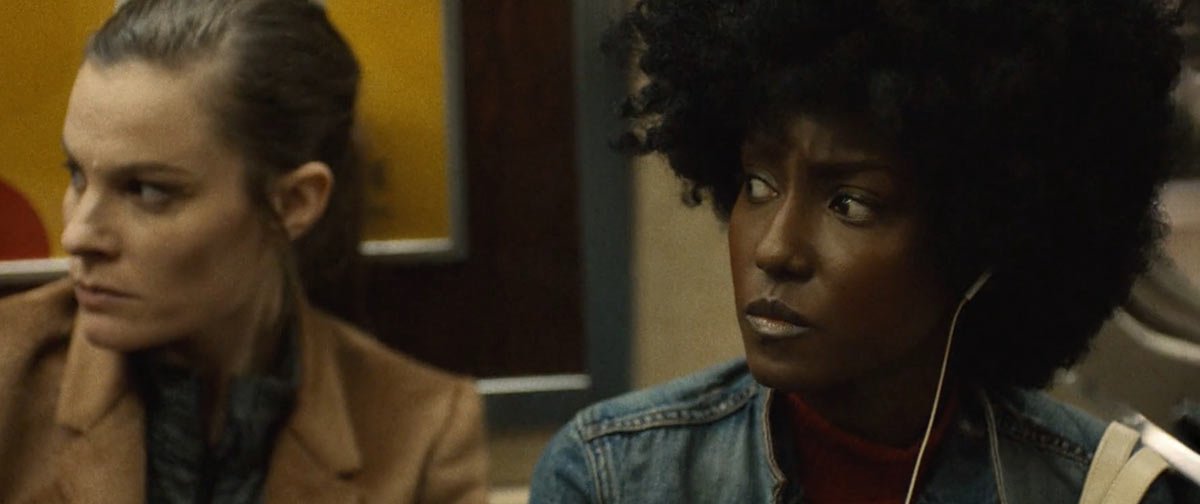The Seeding
by Hope Madden
Writer/director Barnaby Clay reimagines Hiroshi Teshigahara’s Oscar nominated 1964 classic The Woman in the Dunes as a Pacific Northwestern horror in The Seeding.
A man (Scott Haze, What Josiah Saw, Antlers) drives out to the desert for the best possible photos of a solar eclipse. He leaves his car, hikes a good way, gets the photos, and heads back to his car, but he’s sidetracked by a boy crying that he’s lost. The boy then gets the man lost. Eventually, alone and thirsty, the man climbs down a rope ladder into a gorge to ask a woman (Kate Lyn Sheil, She Dies Tomorrow) in the lone house for aid.
Next thing you know, the rope ladder is gone.
Like Teshigahara’s film, The Seeding examines the existential crisis of purposelessness and lack of freedom. But Clay’s film is definitely American in that the roots of the entrapment speak more of something monstrous and primal in the wilds of the nation’s last unconquered spaces.
This works to an extent. Haze is solid, if not particularly sympathetic, as frustration turns to terror, then to horror. Sheil’s enigmatic performance suits a character whose motivation and perspective are concealed.
The couple’s story is complicated by the taunts from a gaggle of sadistic boys roaming the rim of the gorge. Here Clay veers from Teshigahara’s path and into something closer to The Hills Have Eyes and declares the film horror. There’s also some vaguely Lovecraftian imagery, as if these feral desert dwellers worship something far older and more cosmic than this man could understand.
It sounds like an interesting meshing of ideas, but if comes off as a bit of a sloppy mess.
Clay, known primarily for directing music videos, nabs a handful of really impressive shots. And both leads benefit from a single opportunity to outright break down, which both do quite impressively.
But the film is too impatient. Clay reexamines an existential nightmare addressed many times (I’m Not Scared, John and the Hole) and turns to a mixed bag of horror tropes to limit its impact.



